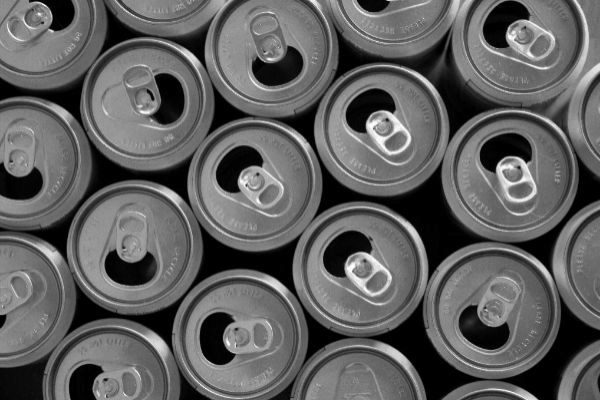- Food: A study links the high consumption of sugary drinks with an increased risk of cancer
In recent years, sugar-free soft drinks - usually referred to as 'light' or 'zero' labels - have gained ground in the market. Many consumers have decided to opt for this alternative instead of other sugary drinks, whose intake has been associated with an increased cardiovascular risk , among other health problems. However, this change may not be a guarantee of safety, judging by the results of a new study.
This work, in which several Spanish centers have participated, has analyzed 451,743 individuals from 10 European countries for an average of 16 years. And their conclusions show an association between habitual consumption of soft drinks - whether sugary or artificially sweetened - and an increased risk of premature death.
"In the investigation we saw that people who drank more than two 250 ml glasses a day of soda had a risk of premature death that was 17% higher than those who drank less than one glass a month," says Dora Romaguera , researcher of the CIBERobn network, of the Illes Balears Health Research Institute and one of the main signatories of this prospective cohort study.
Romaguera stresses that this is an observational investigation, so " it is not possible to establish causal relationships between the consumption of soft drinks and premature mortality." However, he adds, the work adds evidence to a line that "supports public health initiatives aimed at limiting the consumption of soft drinks", as reflected in the work, published in the latest issue of the journal 'JAMA Internal Medicine'.
"So far there has not been much research on the 'light', but two other important studies, in addition to this, have indicated an association with their consumption and premature mortality," says Romaguera, who remarks that "the only healthy alternative is the water . "
Within their work, the researchers analyzed the impact between the consumption of soft drinks and different causes of mortality and found data that open up new research approaches. For example, they found a specific relationship between mortality from cardiovascular causes and artificially sweetened soft drinks.
Although the study was not designed to analyze the origin of this relationship, Romaguera explains that there are several reasons that could explain it. On the one hand, he says, "it is possible that the consumption of soft drinks, even if they are 'light', is associated with other unhealthy lifestyles , although in the study we have adjusted for variables such as weight or smoking," he explains.
On the other hand, he adds, some experimental studies have indicated that artificial sweeteners could affect the intestinal microbiota , increase insulin resistance or promote inflammatory processes, among other possible mediation mechanisms.
The study, conducted in Denmark, France, Germany, Greece, Italy, the Netherlands, Norway, Sweden, the United Kingdom and Spain, also found a relationship between the consumption of sugary drinks and mortality from digestive diseases and found no association between the intake of these products and cancer mortality.
Romaguera recalls that it is important that research continues in this regard, both through other studies that confirm the results obtained , and through research that clarifies what are the possible mechanisms of action that would explain these associations.
"As far as we know, this is the most extensive research on soda consumption and mortality, but it also has limitations, " says Romaguera.
Among others, it is important to highlight that the study only evaluated the consumption of soft drinks at the beginning of the investigation. The recruited individuals had to inform, in many cases through questionnaires, about their habitual consumption of this type of drinks.
According to the criteria of The Trust Project
Know more- Science and Health
HEALTHCrimea-Congo, Zika, Chikungunya, Dengue ... This is the exotic virus that stalks us
Science Butterfly wings inspire a revolutionary anti-counterfeit method
ResearchA cancer drug could be key to treating HIV

